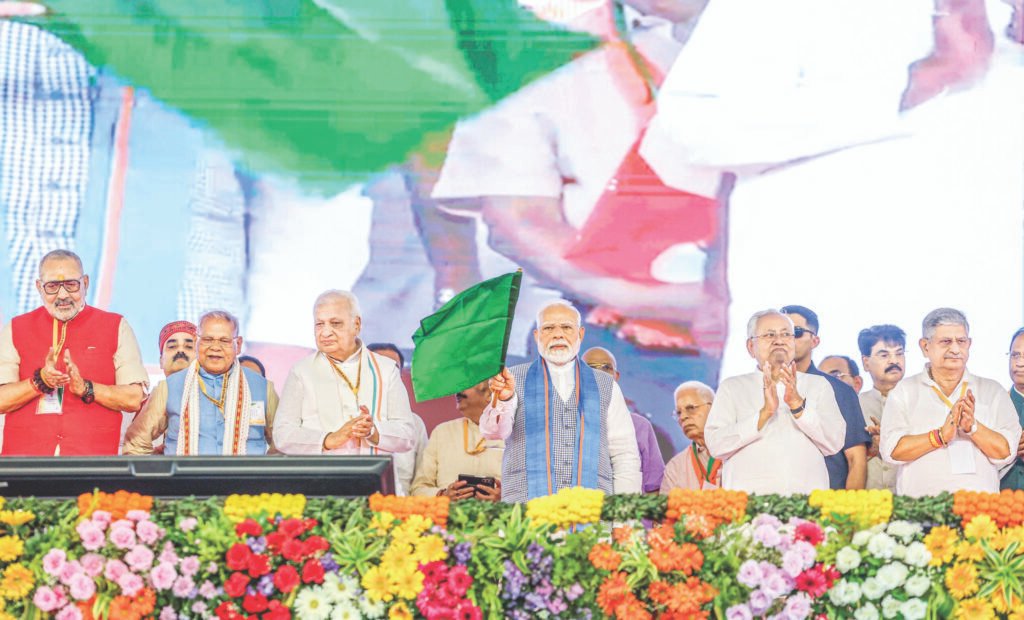In this new era, hospitality is no longer just about transactions; it’s about transformation. Success will belong to those who reimagine the sector as a platform for meaningful engagement, driven by innovation and powered by a young, dynamic workforce.

India’s rail industry evolves from imports to exports, showcasing growth, innovation, and global leadership.
NEW DELHI: When the first train ran between Mumbai and Thane in 1853, the first locomotive engine was imported from England to India in 1852. No one had imagined that engines would one day be made in India, and that we would be able to export them. But with time, this dream turned into reality.
India has since manufactured steam, diesel, and electric locomotives under the Make in India initiative. Now, not only are Indianmade locomotives running on foreign tracks, but entire train sets are also being exported, such as to Bangladesh.
All of them are highly impressed with India’s rapid progress. They see India becoming the third-largest economic superpower in the world.” He also targeted the RJD and Congress for obstructing the development of this factory. He said, “Bihar will prosper and play a significant role in the country’s overall prosperity.”
According to Railway Ministry officials, a total of 150 locomotives will be supplied to Guinea over the next three years. The Marhowrah factory is built on a public-private partnership (PPP) model and is run by a joint venture of GE Transportation, part of the American company Wabtec, and Indian Railways. The factory won the bid through a global tender issued by Guinea.
The locomotives have a capacity of 4500 HP. As per the contract, Indian Railways will supply 37 locomotives in the financial year 2025-26, 82 in FY27, and 31 in FY28. The total contract value is $411 million (Rs 3,353 crore).
The cost of one locomotive is approximately $2.74 million or Rs 23.55 crore. Apart from this, Modi inaugurated the Loco Manufacturing Workshop in Dahod, Gujarat, on May 26, 2025, and flagged off the country’s first 9,000-horsepower electric locomotive.
On this occasion, he said, “The name Dahod will now be known all over the world because this engine, named D9, is ‘Make for World.’” The target is to manufacture about 1,200 Bahubali engines of 9,000 horsepower—the most powerful freight train engines—at this rail factory over the next 11 years.
Siemens, a global company, won the tender and is making this factory a public-private partnership. This achievement is not only an example of India’s industrial capacity and selfreliance but also a demonstration of India’s growing position in the global rail market.
Published – July 10, 2025
Source : https://sundayguardianlive.com/
Disclaimer: This information has been collected through secondary research and ceruleconsulting.com is not responsible for any errors in the same
